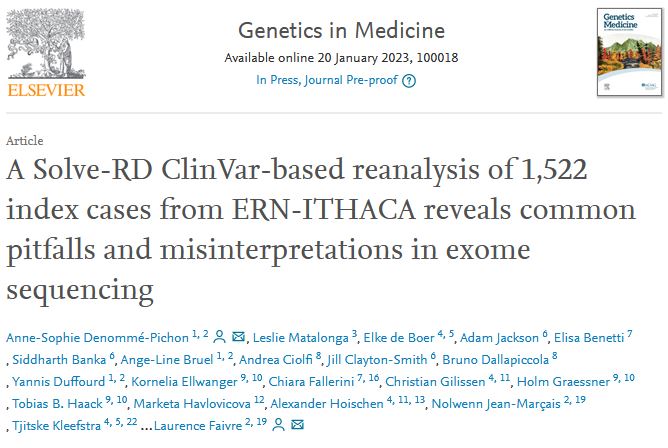
New publication: reanalysis of 1,522 index cases from ERN-ITHACA
Anne-Sophie Denommé-Pichon from CHU Dijon and colleagues from Solve-RD & ERN-ITHACA published "A Solve-RD ClinVar-based reanalysis of 1,522 index cases from ERN-ITHACA reveals common pitfalls and misinterpretations in exome sequencing." in Genetics in Medicine.
Within the Solve-RD project, the ERN-ITHACA aimed to investigate whether a reanalysis of exomes from unsolved cases based on ClinVar annotations could establish additional diagnoses. In their recent paper they present the results of the “ClinVar low-hanging fruit” reanalysis, reasons for the failure of previous analyses and lessons learned.
Data from the first 3,576 exomes (1,522 probands and 2,054 relatives) collected from ERN-ITHACA was reanalyzed by the Solve-RD consortium by evaluating for the presence of SNV/indel already reported as (likely) pathogenic in ClinVar. Variants were filtered on frequency, genotype and mode of inheritance and reinterpreted.
They identified causal variants in 59 cases (3.9%), 50 of them also raised by other approaches and 9 leading to new diagnoses, highlighting interpretation challenges: variants in genes not known to be involved in human disease at the time of the first analysis, misleading genotypes or variants undetected by local pipelines (variants in off-target regions, low quality filters, low allelic balance or high frequency).
Anne-Sophie and colleagues conclude that the “ClinVar low-hanging fruit” analysis represents an effective, fast and easy approach to recover causal variants from exome sequencing data, herewith contributing to the reduction of the diagnostic deadlock.
